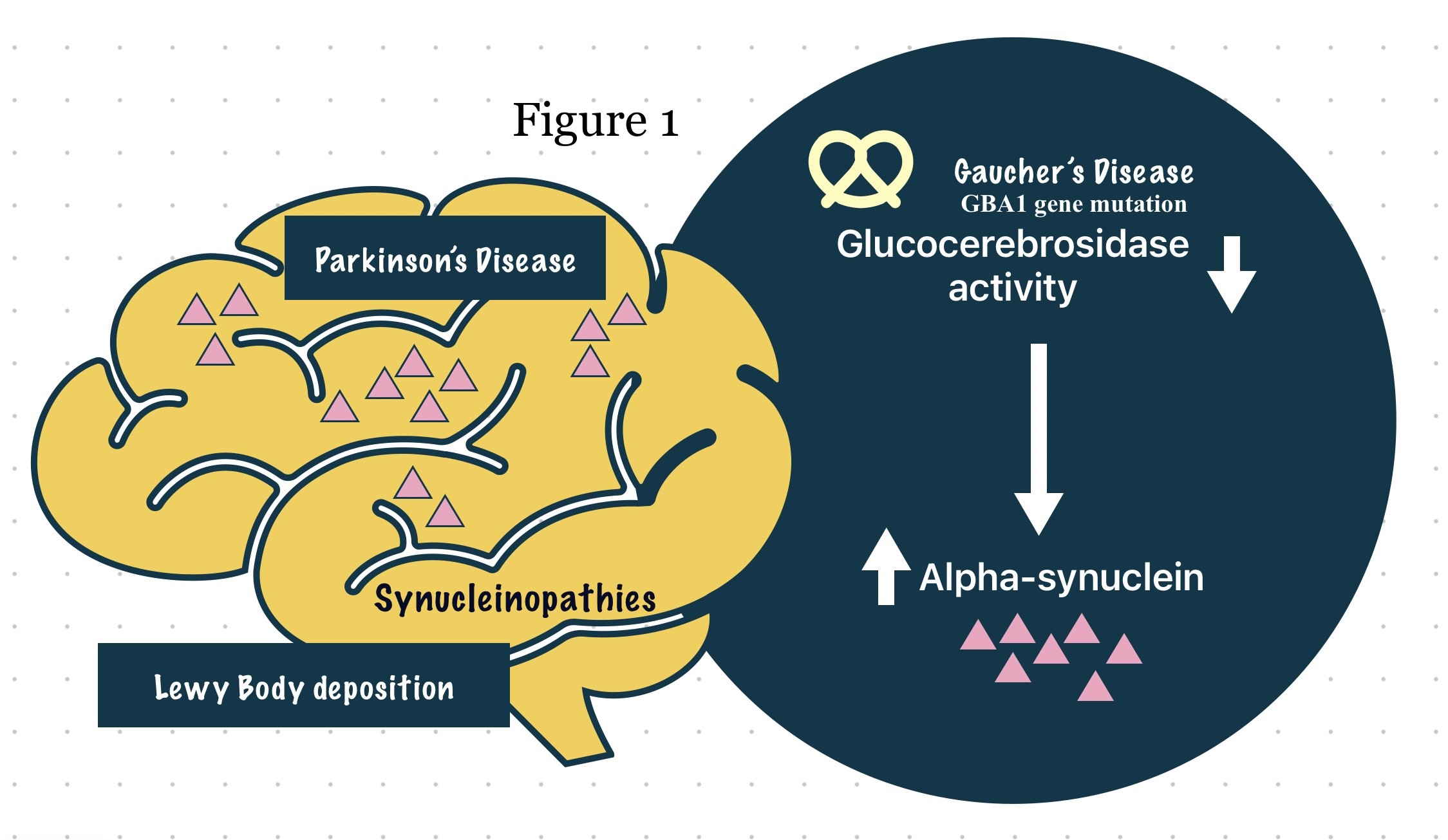Category: Parkinson's Disease: Genetics
Objective: To do a systematic review to find the risk of Parkinson’s disease in patients with Gaucher’s disease.
Background: Parkinson’s disease (PD) is the second most common neurodegenerative disorder. Mutations in the Glucocerebrosidase (GBA1) gene are associated with a higher risk of developing early-onset parkinsonism[1]. This systematic review aims to find out the risk of Parkinson’s disease in patients with Gaucher’s disease.
Method: A PubMed search was done on 7th March 2022, using keywords, [Gaucher’s disease and Parkinson’s Disease] and [Glucocerebrosidase and Parkinson’s Disease]. A total of 409 articles were available and after eliminating the repetitions, the articles were reviewed.
Results: Back in 2004 two landmark studies were published that described parkinsonism among Gaucher’s disease (GD) carriers[2,3]. GD, an autosomal recessive lysosomal storage disorder is caused by a biallelic mutation in the GBA1 gene. GD type 1 is non-neuropathic whereas GD type 2 and 3 have neurological involvement. A decrease in Glucocerebrosidase activity can trigger several synucleinopathies (by deposition of alpha-synuclein), including Parkinson’s disease (figure 1). Patients with GBA1 mutation develop young onset progressive parkinsonism features. Autopsy findings in several studies have also shown Lewy body inclusions in the cerebral cortex and hippocampus of such patients[4]. A prospective survey of patients carried out at Gaucher’s clinic at the National Institute of Health, reported that 25% of patients had a family history of parkinsonism[5]. Either the symptoms of Gaucher’s can reflect first or patients may straightaway present with early-onset parkinsonism. Common manifestations of parkinsonism in such patients include tremors, bradykinesia, gaze abnormality and apraxia. They are more likely to develop cognitive and olfactory dysfunction along with hallucinations but comparatively less rigidity. Studies have shown that enzyme replacement therapy using recombinant Glucocerebrosidase initiated for Gaucher’s disease did not prevent Parkinson’s disease, as the agent failed to cross the blood-brain barrier. Recent studies have shown excellent responses to Levodopa treatment for parkinsonism in patients with Gaucher’s disease.
Conclusion: Despite the associated high risk to develop early onset parkinsonism in patients with GBA1 mutation, many GBA1 carriers never develop PD. Thus, evaluating other risk factors for PD is essential.
References: 1. Parlar SC, Grenn FP, Kim JJ, Baluwendraat C, Gan-Or Z. Classification of GBA1 Variants in Parkinson’s Disease: The GBA1-PD Browser. Mov Disord. 2023 Jan.
2. Lwin A, Orvisky E, Goker-Alpan O, LaMarca ME, Sidransky E. Glucocerebrosidase mutations in subjects with parkinsonism. Mol Genet Metab. 2004 Jan.
3. Goker-Alpan O, Schiffmann R, LaMarca ME, Nussbaum RL, McInerney-Leo A, Sidransky E. Parkinsonism among Gaucher disease carriers. J Med Genet. 2004 Dec.
4. Riboldi GM, Di Fonzo AB. GBA, Gaucher Disease, and Parkinson’s Disease: From Genetic to Clinic to New Therapeutic Approaches. Cells. 2019 Apr.
5. Sidransky E, Lopez G. The link between the GBA gene and parkinsonism. Lancet Neurol. 2012 Nov.
To cite this abstract in AMA style:
B. Pandey. Parkinson’s disease in patients with Gaucher’s disease – causation or association? [abstract]. Mov Disord. 2023; 38 (suppl 1). https://www.mdsabstracts.org/abstract/parkinsons-disease-in-patients-with-gauchers-disease-causation-or-association/. Accessed December 29, 2025.« Back to 2023 International Congress
MDS Abstracts - https://www.mdsabstracts.org/abstract/parkinsons-disease-in-patients-with-gauchers-disease-causation-or-association/

